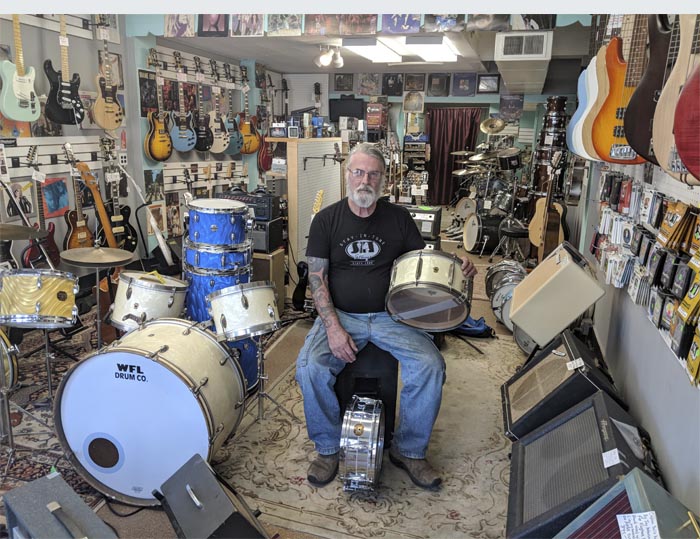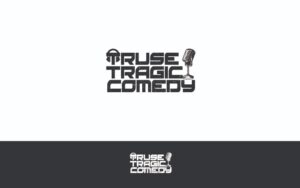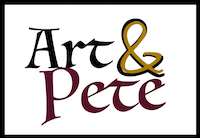
Alex Kellner with his wares. (Photo by Christina Coulter)
Alex Kellner of Kingtone Music at 282 Main St., whose unofficial slogan is “where a handshake still means something” is selling the last of his guitars, drum kits and pedals between, he says, 5 and 12 percent above their wholesale price.
By October, he hopes to hop into his camper with his wife and hit the road, focusing on his own music and playing gigs around the country. After leaving his music store of the same name in Florida some years ago, he said he had no intention of opening another, but he “wound up picking up guitars here and there, and next thing you know I had a bunch of guitars.”
“I’m getting old, I’m not in the best of health that I used to be and [running the store] consumes my whole life,” said Kellner, who will turn 63 next month. “I don’t get a chance to play anymore, I don’t get a chance to go out and see shows. It’s time to live life instead of spending 15 hours a week in the store and spending more time on social media and [promoting the store].”
After attending high school together in Long Island, Kellner and his wife both settled into separate marriages; 40 years later, the pair reconnected on Facebook and Kellner moved up from the Sunshine State to Saugerties.
Kellner and this reporter sat on a guitar amps during this interview; Kellner said he’s “growing his winter wheat” on his face, wore a shirt that said “Stay In Tune” and sported a tattoo of Lou Reed and Patti Smith on his calf. He’s adorned all of the wall space not already occupied by guitars with his favorite albums: featured are titles from Johnny Winter, Children of the Future by the Steve Miller Band, a signed copy of an Ian Hunter Band album featuring Mick Ronson and Looking In by Savoy Brown.
“It’s something I came up with,” said Kellner of the establishment’s name. “Musicians are always looking for that king of tones, the never-ending search for that tone, you know?”
Although the store was closed during the interview, he opened back up to give some guitar strings to regular customer who passed by and rapped on the front door. He said that this kind of thing is part of his “old school” approach to running a music shop, to which he attributes his five-star online ratings.
“I have a number of regulars that come in, and they’re $60 short and I’ll say, ‘Pay me next time you come in here,’” said Kellner. “I think I’ve been burnt twice, but that’s all right. For the most part, out of 100 or so people that have been short, to get burnt two times, I can handle 2 percent. That helps my reputation, too.”
“I know those guys, you know that whole handshake thing was alive there,” said Michael Barnecott, a regular at the store and the rhythm guitarist of the local band Lost Aesthetic. “[Alex] would honor his deal. They would help me fix things. [Alex and his stepson will] listen to you, they’ll listen to your band and they’ll accommodate you for whatever you’re looking for. They really were patient with me and were always willing to give me advice. They weren’t always looking to sell me something, they were just looking to help me out.”
Barnecott, who currently walks to the store for all of his musical equipment, said that he was unsure of where he would shop when Kingtone closes.
Kellner’s preferred brands for acoustic guitars are Seagull and Alvarez, while his favored electric guitars are Fenders.
“First of all, the tone of it,” said Kellner of how he chooses a good guitar. “The feel of it, the balance of it. I like to put the strap on it and put it around my neck and make sure the guitar doesn’t tilt this way or this way. Definitely, to sum it up real briefly, tone balance and the quality of the electronics.”
His favorite drum line to carry is Gretsch, which he plays himself: “It’s a name that’s been around for 100 years.” A prized item, proudly displayed in the front of his store, is a 1971 Gretsch drum set Kellner found at an estate sale. Similarly acquired is a 1946 Ludwig drum set, which is made with potted metal rather than steel because of the demand for the latter during World War II.
Kellner said that an episode of Ed Sullivan featuring Ringo Starr (presumably with that band he was in back in the ’60s) led him to start drumming.
“I used to sneak down in the basement, my brother had a band and there was all of this nice equipment down there,” said Kellner of his start as a drummer. “I was seven, eight years old in 1966 me and my friends would go down there, take a piece of butcher paper to cover up the name of my brother’s band, The Mod Quad. We were called ‘Neat Ones.’ We’d hear my brother come down and we’d scurry out the basement windows.”
Similarly, Kellner first got into the instrument business with his brother as a partner.
For now, a sign reading “No Dealers” sits in the window; Kellner hopes to save all of his closing sales for the locals who have kept his business thriving, and intends to wait until the store’s last two weeks of operation to allow other music stores and dealers to pillage his stock.
Although he is trying to part with his stock, Kellner also confirmed an order of pedals over the phone: “I want everything to go down under a nice even balance,” he said. “Even though I’m only making about 10 percent over cost, since everyone has been so nice here, I want to make sure that I have an amp for them, cords for them. I’m trying to make sure that everything gets sold down nice and evenly … I don’t want anyone to come in for a guitar an amp and a flex pedal and all I have is a guitar for them and they have to go somewhere else to get it. It’s kind of my way of saying thank you to everyone, to have an even sell-down.”
Although he intends on closing up shop on Oct. 1 to travel and play, Kellner intends to keep his home base in Saugerties.
“There are my roots; I’m a mountain man now,” he said.
Only a fraction of the content from each issue of Saugerties Times is posted online. To read it all, take advantage of our Dog Days subscription sale and get six months for just $15.






